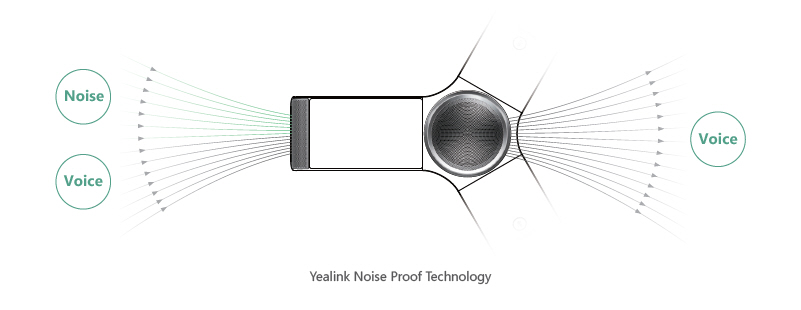Introduction
In today's fast-paced digital world, businesses are constantly seeking ways to improve communication while minimizing costs. Enter VoIP (Voice over Internet Protocol) and SIP (Session Initiation Protocol)—two game-changing technologies that have revolutionized telephony as we know it. If you've been contemplating upgrading your communication system or simply want to understand how these technologies work, you're in the right place! This article will act as your comprehensive guide to VoIP vs SIP: Understanding the Differences for Better Decision Making.
What is VoIP?
VoIP Phone Systems have become increasingly popular among businesses of all sizes. But what https://rentry.co/ot2c65m5 exactly is VoIP? In simple terms, VoIP is a technology that allows you to make voice calls using an internet connection instead of traditional phone lines.
How VoIP Works
VoIP converts your voice into data packets and sends them over the internet. This process involves several key components:
Codec: This compresses your voice into data packets. Router: Directs the packets to their destination. SIP Client: The software/hardware that manages the call setup and teardown.With a VoIP Phone System, you can enjoy features like call forwarding, voicemail-to-email, and conference calling without breaking the bank.
Benefits of Using a VoIP Phone System
- Cost-Effective: Save on long-distance charges. Scalability: Easily add or remove lines based on your needs. Advanced Features: Enjoy functionalities like video conferencing and instant messaging.
What is SIP?
Now that we've established what VoIP is, let's delve into SIP. SIP stands for Session Initiation Protocol. It’s not just a protocol; it's the backbone of modern telecommunications!
How SIP Works
SIP is responsible for initiating, maintaining, and terminating real-time sessions across IP networks. Here’s how it operates:

User Agent Client (UAC) initiates requests. User Agent Server (UAS) responds to those requests. Request/Response Cycle: Similar to HTTP but tailored for real-time communications.
More than just voice calls, SIP supports video calls, messaging, and even presence information—making it incredibly versatile.
Benefits of Using SIP
- Flexibility: Integrates easily with other communication platforms. Cost Savings: Reduces costs associated with hardware and maintenance. Interoperability: Can work alongside different systems seamlessly.
VoIP vs SIP: Understanding the Differences for Better Decision Making
So what's the big deal about distinguishing between VoIP and SIP? Understanding their differences can empower you to make informed decisions regarding your communication strategies.
Key Differences Between VoIP and SIP
| Feature | VoIP | SIP | |-----------------------|--------------------------------|----------------------------------| | Definition | Technology for voice calls | Protocol for managing sessions | | Scope | Primarily focused on voice | Covers voice, video, and messaging| | Complexity | Simpler implementation | More complex with multiple layers | | Cost | Generally cheaper | Varies depending on deployment |
Why Choose One Over the Other?
Choosing between a VoIP Phone System and utilizing SIP largely depends on your business's specific needs.
- If you're primarily looking for cost-effective voice solutions, go with VoIP. If you need advanced features like video conferencing or multi-party communication, consider implementing SIP.
Common Misconceptions About VoIP and SIP
Misconception 1: All VoIP Services Use SIP
While many do use SIP as a signaling protocol, not all VoIP services are based on it! Some may employ other protocols that could affect functionality.
Misconception 2: VoIP is Only Suitable for Large Businesses
This couldn’t be further from the truth! With cloud-based solutions available today, small businesses can also leverage powerful VoIP benefits without needing extensive infrastructure.
Government Regulations Affecting VoIP and SIP
As with many technologies today, regulations play a crucial role in shaping how they function within society. The Federal Communications Commission (FCC) oversees various aspects of telecommunication services in the U.S., including both VoIP and SIP systems.
Choosing Your Ideal Communication Solution
When deciding between a VoIP Phone System or implementing a complete SIP solution:

Frequently Asked Questions (FAQs)
1. What are some popular providers of VoIP services?
Many companies offer robust options such as RingCentral, Vonage Business, and 8x8 Virtual Office among others.
2. Is there any difference in call quality between VoIP and traditional phone lines?
Yes! While traditional lines may offer consistent quality, advancements in broadband technology have significantly improved call quality over VoIP systems as well!
3. Can I use my existing phone system with VoIP?
Absolutely! Many providers offer adapters that let you connect existing phones to their network seamlessly.
4. Does using a Voip Phone require special equipment?
Generally speaking, yes—though many services offer softphone applications that allow you to make calls via your computer or smartphone!
5. Are there security concerns related to using either technology?
Both technologies come with potential vulnerabilities; however, employing secure networks and protocols mitigates most risks effectively.
6. How do I decide which option is best for my business?
Consider factors like cost structure requirements scalability goals—and don’t hesitate to consult experts when making this decision!
Conclusion
In summary—when comparing two powerful tools like VoIp vs Sip—it ultimately boils down to understanding their unique capabilities as well as assessing how each aligns with your specific operational requirements! Whether you're leaning toward a straightforward VoIp Phone System or embracing the multifaceted possibilities offered by SIp technology—rest assured that both options stand ready to elevate communications across any organization!
The takeaway? Knowledge is power; by grasping these concepts fully—you'll be better equipped to make decisions that invigorate your workplace dynamics while simultaneously cutting costs along the way! So roll up those sleeves because it's time to dive into this brave new world of telecommunication!